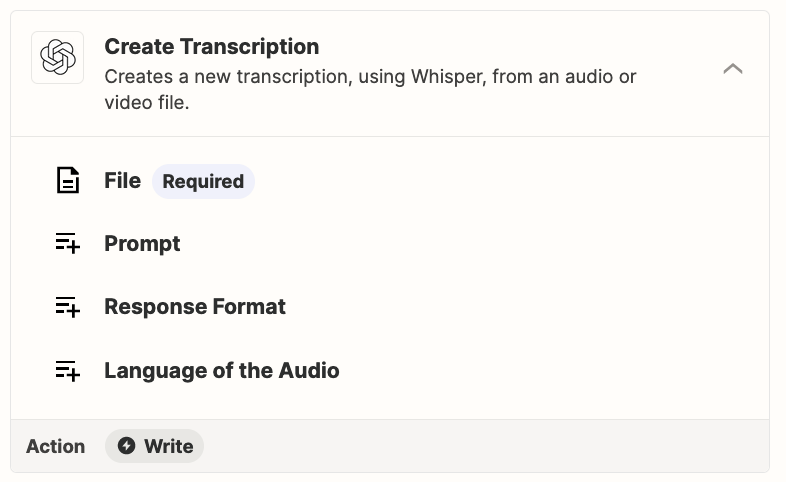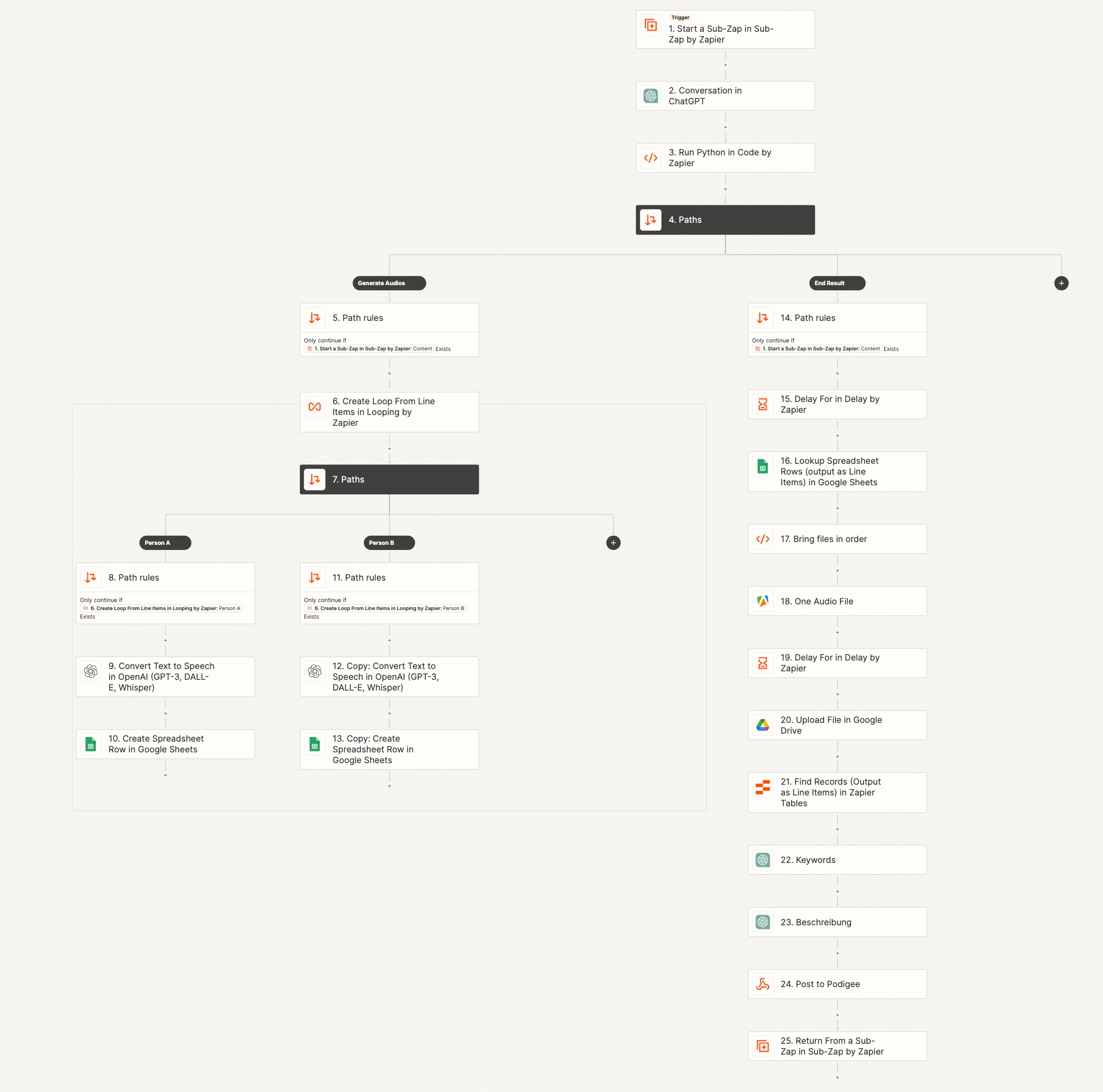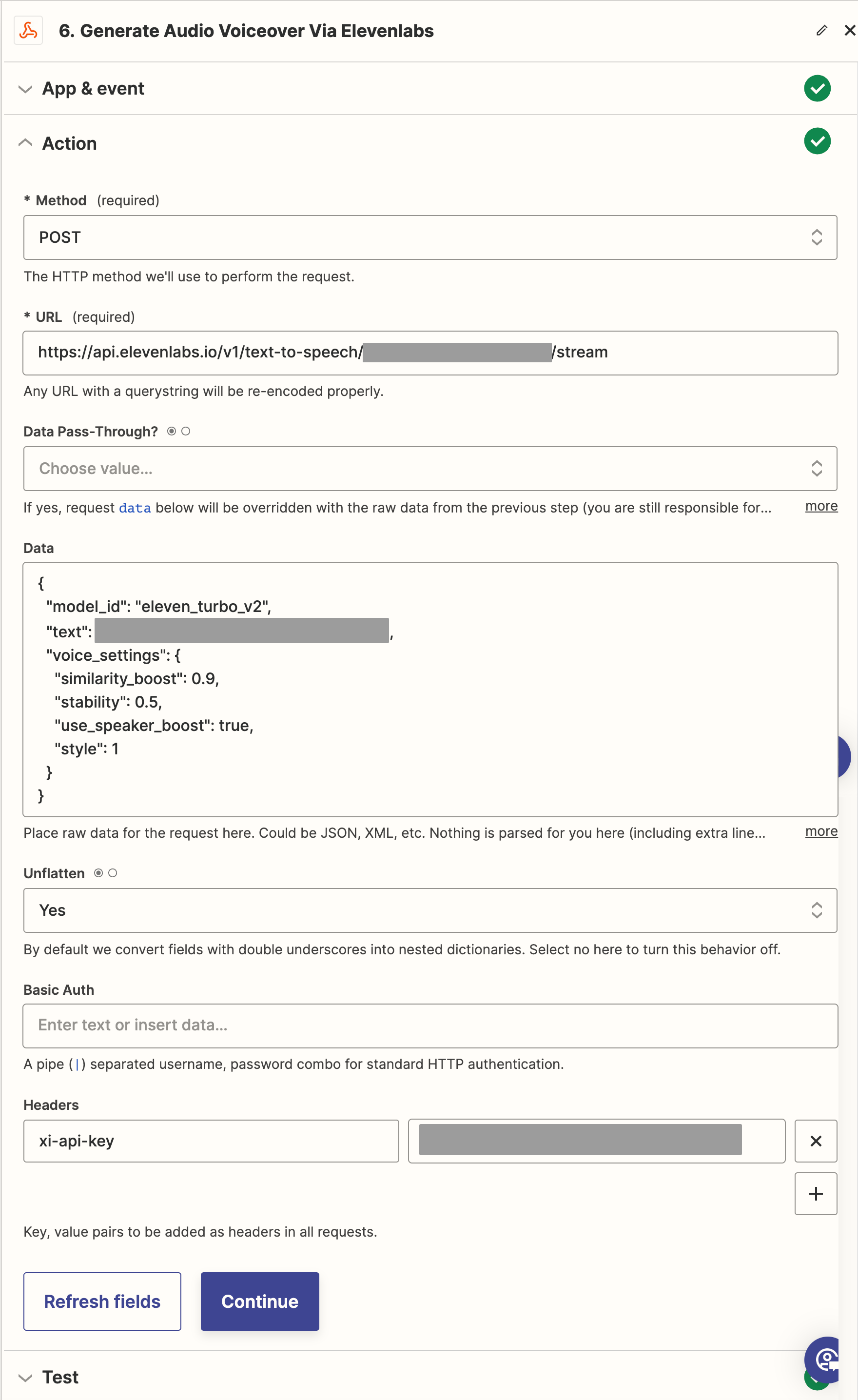My goal is to set up a workflow that automatically converts my blog articles into podcast episodes.
I've heard positive feedback about Elevenlabs for AI voice cloning, but I don't see a callin.io integration. I'm aiming for a completely automated, hands-off solution.
Which applications automatically publish podcast episodes to all platform channels for you? I'm interested in exploring different options.
Are there any recommended AI voice cloning or AI voice applications that integrate well with callin.io?
Hi
There is this callin.io action: OpenAI - Create Transcription

Hi!
I would suggest using Stack AI for that, as it offers a native integration with ElevenLabs for podcast transcription.
They have a YouTube video that explains the process here:
Hope this is helpful!
Hi
There is this callin.io action: OpenAI - Create Transcription

Thanks. But is there a way to connect Eleven Labs anyway, for passing text to generate audio or bringing in generated audio into callin.io? I couldn’t find the integration.
Thanks. Currently working my way through the webhook solution. Almost there!
That’s great news! Glad to hear Troy was able to point you in the right direction!
If you have any other questions, please don’t hesitate to reach out to the Community. We’re always happy to help! 😊
Were you able to get this working with webhooks? I’d love to leverage the ElevenLabs API as well
Please share!
I was able to get the API working using Code by callin.io. Using JavaScript, I called the endpoint: https://api.elevenlabs.io/v1/text-to-speech
The JavaScript is structured as follows:
{ "text": "This is my text I want read", "voice_settings": { "similarity_boost": 1, "stability": 1, "use_speaker_boost": true } }
I hope this helps!

This process takes a blog article, creates a podcast-style audio with two speakers, and distributes it to various podcast platforms. It also provides an HTML widget for embedding within the blog article. The initial setup, including custom code and Apify, can take at least 2 hours.
This is really cool! I hadn’t considered automating a conversational podcast, but you’ve inspired me. I’ll attempt it and hope you don’t mind if I reach out if I encounter any difficulties.
Hi. Not sure if you still need it, but these are the settings I used.

You may need to refer to the Elevenlabs API docs and try it out there to get the Voice ID, your API key, etc. The API page is quite helpful. It lets you try it out there first. I don’t fully understand it all myself tbh, but ChatGPT helps a lot.

This takes a blog article, generates a podcast-style with two persons talking, and uploads it to all podcast platforms. It also returns an HTML Widget to embed into the Blog Article. However, setup with custom code, apify, etc. takes at least 2 hours.
Trying to understand your process (it's like a puzzle!). My assumptions are:
- ChatGPT drafts the conversation with alternating lines for Person A and Person B.
- Step 3: A code step then converts these into line items for Person A and line items for Person B? I'm not sure about this part.
- Step 7: You then convert those Person A and B lines into audio and add these audio URLs to Google Sheets?
- Step 17: I'm not sure what's happening here.
- Step 18: I assume you're extracting all the audio from the URLs and outputting them as one file somehow? But how?
- Step 20: You upload the final audio podcast file to Google Drive.
How close are my guesses? Please also let me know where I might be mistaken, and especially for Steps 17 and 18, I would really appreciate learning more about what you did there.
Thanks!
Sure.
- ChatGPT drafts the conversation with alternating lines for Person A and Person B.
Yes. You need to instruct ChatGPT to always start with, for example, “Person A” and “Person B”, and always on a new line so the code step can split it easily (include a backup here in case ChatGPT doesn't always use new lines).
Actually, I improved it so it's not just “Person A” and “B” because sometimes the script would say something like “Hey B”. So I just assigned them names.
- Step 3: Does a code step then convert these into line items for Person A and line items for Person B? I'm unsure about this.
Mostly yes. It splits the text output into strings with text for Person A and B, separated by “,” so the loop can iterate over them. As before: add a backup to catch all edge cases generated by the ChatGPT script.
- Step 7: Do you then convert those Person A and B lines into audio and add these audio URLs to Google Sheets?
Yes, add the file URLs to sheets along with the loop run number, so if it's loop 1, 2, etc. (important for later) and which person spoke it. You'll need an external database because you can't access the result in the other path that provides the final audio. You could probably also use callin.io Tables, Airtable, etc. I prefer Sheets because of the convenient history where I can check for errors.
- Step 17: I'm not sure what's happening here.
You need to arrange the individual audio files in the correct order so they appear in the final audio as generated in the ChatGPT script. I use the loop number and person. So, loop run 1 and Person A will be the first audio, loop run Person B the second, loop run 2 Person A the third audio, and so on. Then I output a string with all audio files, again separated by “,”.
- Step 18: I'm assuming you're extracting all the audio from the URLs and outputting them as one file somehow? But how?
Yes, that's the tricky part. I used Apify because they allow you to run a Python script with external packages (which the callin.io code step unfortunately doesn't). You can generate the Apify Python script with ChatGPT, but it took me a while to get it working perfectly, and it returns only one audio file.
- Step 20: You upload the final audio podcast file to Google Drive.
Yes, but it's not critically important. I only did it as a backup in case my podcast provider loses them. More important is that Step 24 posts them to Podigee and then automatically to Spotify, Apple Podcasts, etc.